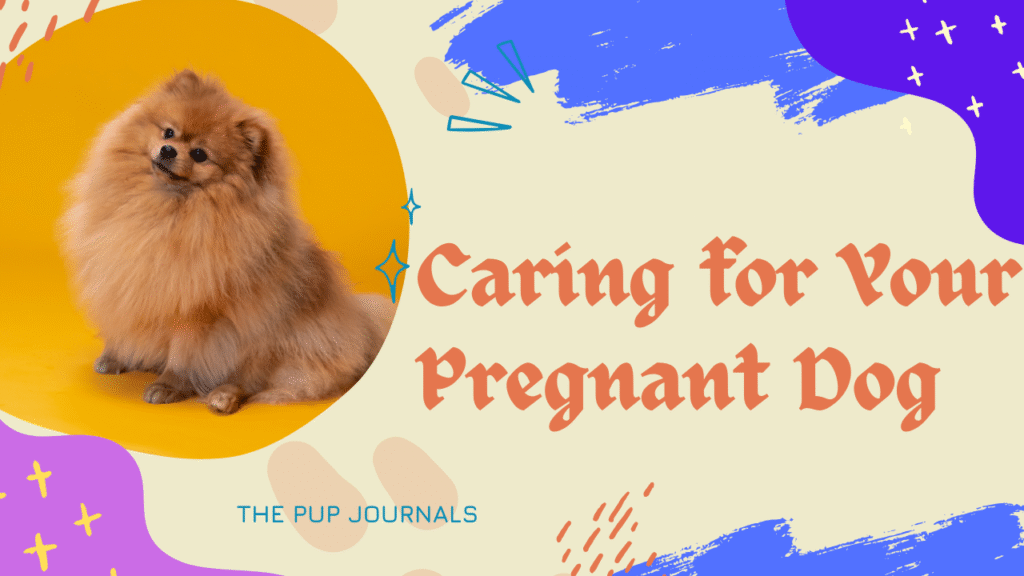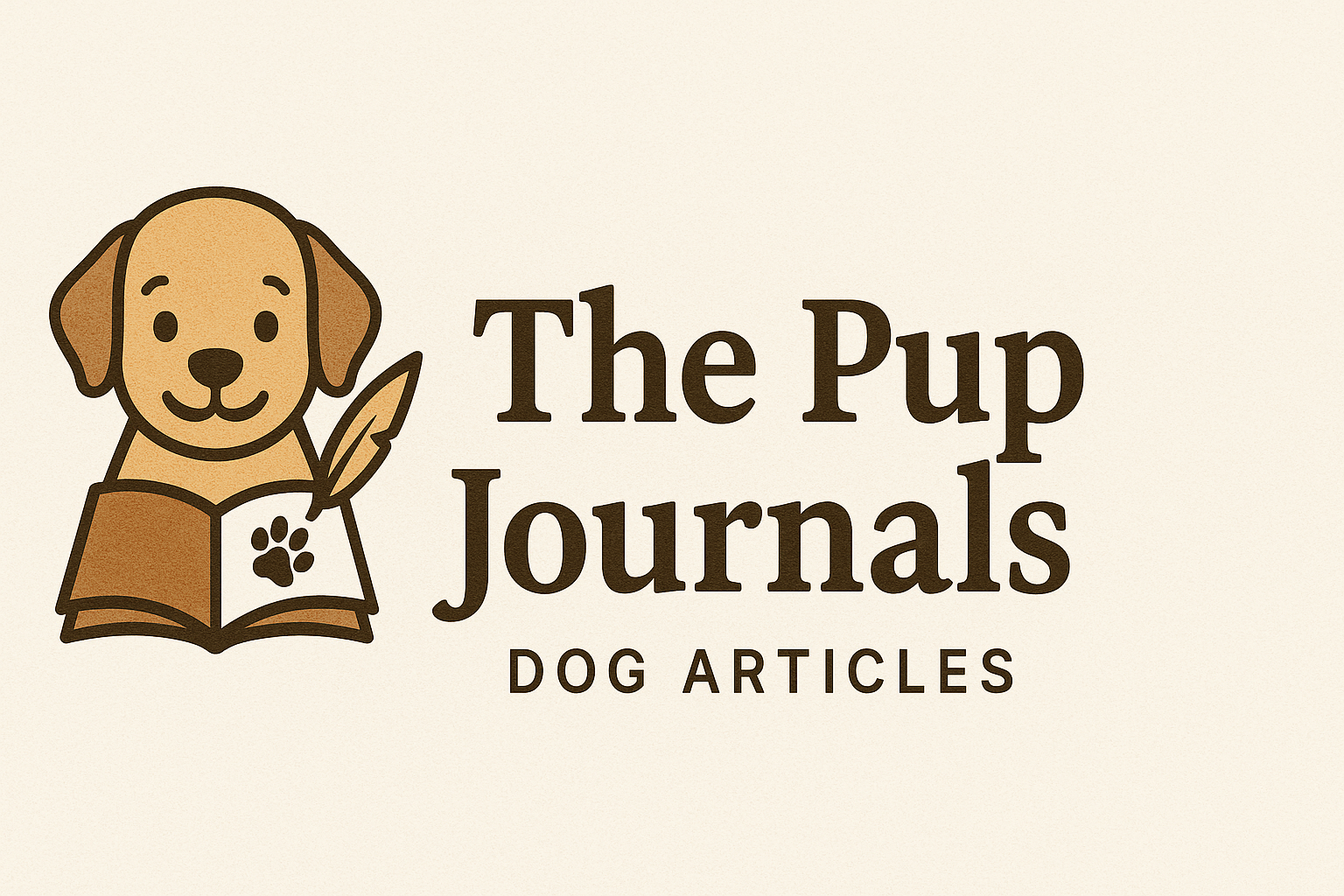
Table of contents
Caring for a pregnant dog involves medical oversight, proper nutrition, comfortable living conditions, and attentive emotional support. The experience of bringing a litter of pups into the world is thrilling and fulfilling, but it also carries a great deal of responsibility. For healthy food, medical attention, emotional support, and a secure environment, your expectant dog depends on you.
Confirming the Pregnancy
A missing heat cycle could be the first indication your dog is expecting. Many dogs show minor changes, such as enlarged teats, moderate tiredness, or a little decrease in appetite, three to four weeks after breeding. The best way to confirm pregnancy is to see a veterinarian between days 25 and 30. To find fetal heartbeats, determine the size of the litter, and rule out any early issues, your veterinarian can use an ultrasound. By week four, pregnancy can also be confirmed by blood testing (relaxin hormone assays). With early confirmation, you can modify your dog’s care regimen to meet the special requirements of expectant mothers by changing things like diet, exercise, and supervision.
Optimizing Nutrition
The foundation of a good pregnancy is nutrition. Most dogs don’t require more calories during the first half of pregnancy (weeks 1–5), but beginning in week six, her energy needs start to increase. She might require up to 25–50% more calories than normal by weeks seven or eight.
- High-Quality Puppy Food: Puppy formulas are richer in protein, fat, and key nutrients than adult maintenance diets—perfect for gestation. Begin gradually transitioning her to puppy food around day 40.
- Frequent, Smaller Meals: As the fetuses grow, stomach capacity diminishes. Dividing her daily intake into three or four smaller meals helps prevent discomfort and indigestion.
- Supplementation: Most balanced puppy diets already include essential vitamins and minerals. Avoid extra calcium or vitamin D supplements unless specifically prescribed by your vet, as over-supplementation can lead to complications like eclampsia.
Veterinary Care and Monitoring
Consistent veterinary oversight keeps potential issues in check:
- Mid-Pregnancy Check (Week 5–6): Re-examine the pups’ development. Your vet can monitor weight gain, uterine size, and overall maternal health.
- Vaccinations and Parasite Control: Ensure core vaccines are up-to-date before breeding; avoid live vaccines during pregnancy. Use only vet-approved flea, tick, and worming products that are safe for pregnant dogs.
- Blood Work: If your pup has any breed-related health concerns (e.g., hip dysplasia tendencies, genetic disorders), discuss testing and preventive measures.
Keep track of her weight weekly. A healthy pregnant dog typically gains 15–25% of her pre-pregnancy body weight (varies by breed and litter size).
Exercise and Physical Comfort
Moderate, low-impact exercise is important throughout gestation:
- Daily Walks: Continue regular strolls, adjusting pace and duration as needed. Avoid strenuous activities like agility or high jumps after mid-pregnancy.
- Swimming: If your dog enjoys water, gentle swims provide low-impact exercise that’s easy on her joints.
- Rest and Support: Provide orthopedic bedding in a quiet spot. As her belly grows, she’ll need more rest. A maternity harness can help support her abdomen during walks in the last trimester.
Pay attention to her comfort level. If she tires easily or shows signs of pain, shorten her exercise sessions and consult your vet.
Creating a Nesting Area
In preparation for whelping (giving birth), provide a dedicated, quiet den:
- Whelping Box: A sturdy, easy-to-clean box with low sides for entry and exit—but high enough to prevent pups from wandering out. Line it with absorbent pads or blankets.
- Quiet Location: Choose a calm area of the house away from loud noises, heavy foot traffic, and other pets.
- Optimal Temperature: Keep the room around 75–80°F (24–27°C) before birth to prevent pups from getting chilled. Have a heat lamp or pad ready for after whelping, as newborns can’t regulate their body temperature.
Introduce her to the whelping box about two weeks before her due date to encourage bonding and nesting behavior.
Recognizing Labor Signs
Dogs typically have a 63-day gestation, but anywhere from 58–68 days can be normal. Watch for these pre-labor signs:
- Temperature Drop: A dog’s normal temperature is 100–102.5°F (38–39°C). When it drops to around 98–99°F (37–37.2°C), labor often begins within 24 hours.
- Behavioral Changes: She may become restless, pant, pace, dig, or seek seclusion.
- Loss of Appetite: Many pregnant dogs refuse food 12–24 hours before whelping.
- Nesting Behavior: Increased digging, arranging bedding, and whining.
Have your vet’s number on speed dial in case of complications—prolonged labor, distress, or if more than two hours pass between puppies without contractions.
Assisting During Whelping
Most dogs whelp naturally without intervention. Your role is to stay calm, monitor progress, and prepare to assist if needed:
- Cleanliness: Keep the area clean. Have clean towels, scissors (sterilized), dental floss or umbilical clips, and iodine solution ready.
- Monitoring: Note the time of each puppy’s birth and the interval between pups (ideally under 2 hours).
- Cord Care: If the mother doesn’t chew through the umbilical cords, gently tie them off 1–2 inches from the puppy’s belly and cut with sanitized scissors; dip the stump in iodine.
Allow mom to lick and clean her puppies—this stimulates breathing and circulation. Intervene only if a pup isn’t breathing; gently clear the airway and rub with a towel to stimulate respiration.
Postpartum and Puppy Care
Once all pups are born and mom is resting:
- Nursing: Newborn puppies should latch within the first hour. Monitor feeding to ensure every pup nurses; supplemental feeding may be necessary for weaker babies.
- Maternal Rest: Mom needs plenty of sleep and nutritious food. Offer high-quality puppy food free-choice for the first few weeks to meet her elevated calorie needs.
- Health Checks: Schedule a vet exam for mom and pups within 48 hours. The vet will check for retained placentas, uterine infections, and newborn vitality.
- Elimination: Puppies can’t eliminate waste on their own for the first two to three weeks. Mom usually stimulates them by licking—if she’s overwhelmed, gently rub each pup’s abdomen and genital area with a warm, damp cloth after feeding.
Maintain a clean whelping area by changing pads daily and removing any waste. Monitor puppies’ weight daily: healthy pups gain roughly 5–10% of their birth weight each day.
Weaning and Beyond
Weaning typically begins around three to four weeks of age:
- Gradual Introduction: Mix puppy kibble with warm water or puppy formula to make a gruel. Offer it in a shallow dish several times a day while mom is still nursing.
- Reducing Nursing: Over the next two weeks, gradually thicken the food and reduce nursing sessions. By six to eight weeks, puppies should be fully weaned and eating solid puppy food.
Continue to provide supervised puppy playtime, socialization, and gentle handling to promote healthy development and prevent behavior problems.
Emotional Support and Bonding
Pregnancy and motherhood are emotionally taxing. Your dog may experience anxiety or mood swings—be patient and attentive:
- Affection and Praise: Offer gentle pets, soothing words, and soft praise.
- Consistency: Stick to regular feeding, exercise, and rest schedules.
- Family Integration: If you have other pets, reintroduce them to the whelping area gradually and under supervision. Keep interactions calm to avoid stressing mom.
Document milestones—weight gain, due date countdown, puppy development—to strengthen your bond and help you anticipate each stage.
Conclusion
Pregnant dogs require careful medical supervision, wholesome food, cozy living quarters, and emotional support. You may help your dog have a healthy, stress-free pregnancy and birth by confirming the pregnancy early, managing her diet, making sure she gets regular veterinary checks, and setting up a safe whelping environment.
Reference : AKC
Read More Caring Guide from Here : The Pup Journals


One Response